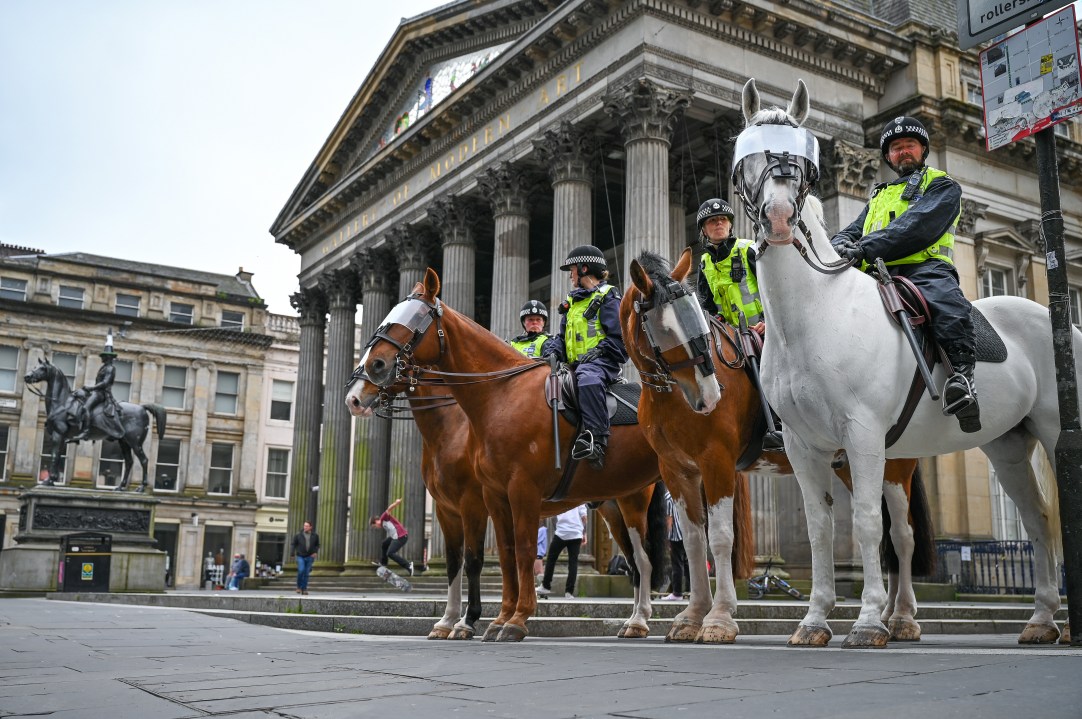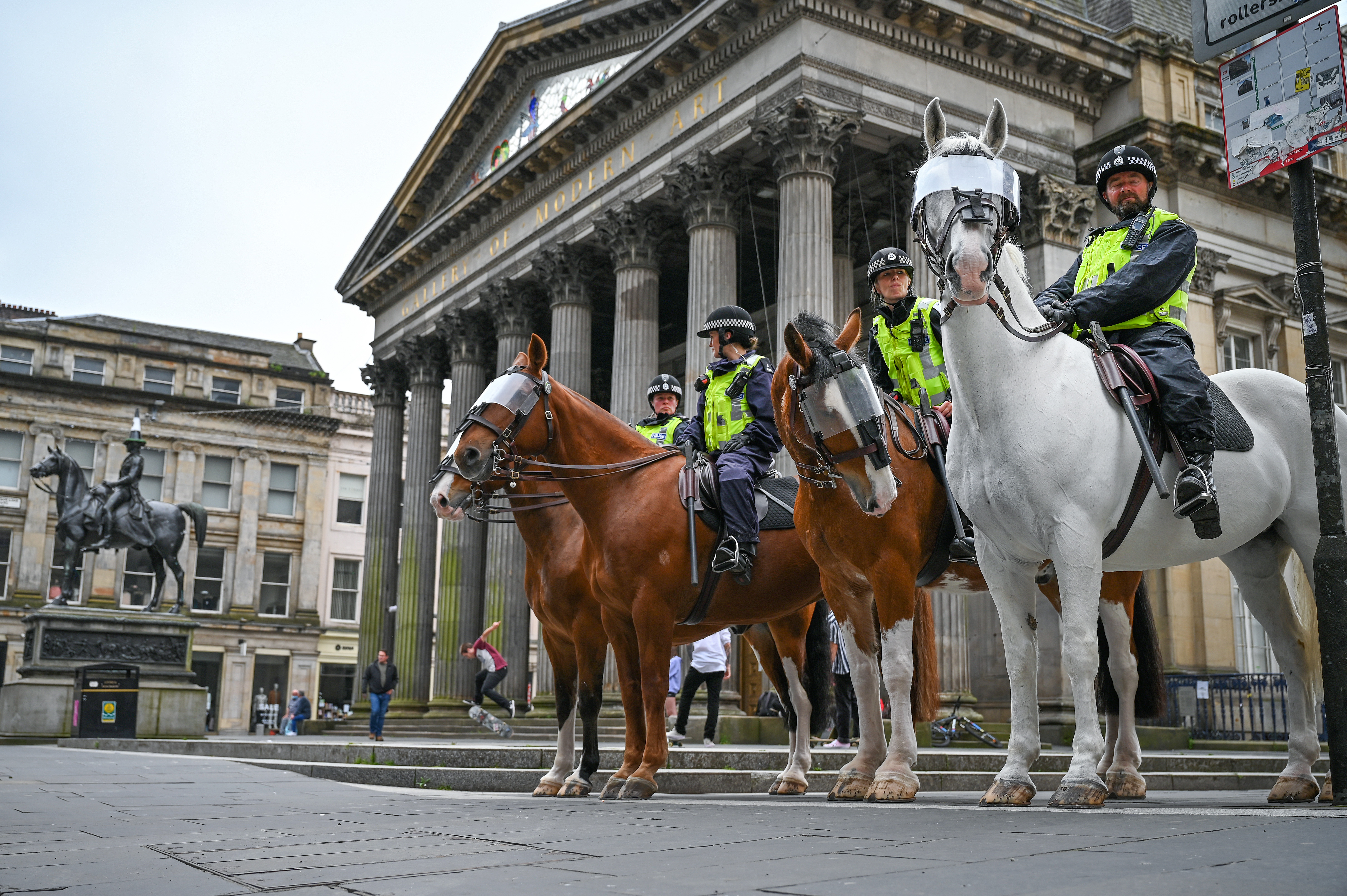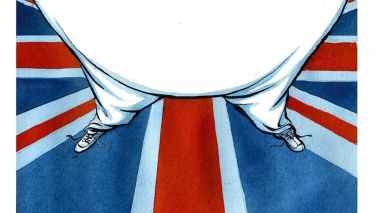Scenes of disorder in Glasgow city centre on Wednesday may be a glimpse of the future as the radical right grows emboldened by recent race-related unrest. So far six men have been arrested on suspicion of what Police Scotland described as ‘minor public order offences’ and Scotland’s justice minister Humza Yousaf has described the behaviour as ‘racist thuggery’.
Peaceful demonstrators from No Evictions Glasgow had come to Glasgow’s George Square to campaign for better treatment of asylum seekers but were met by members of the National Defence League, who professed to be there to protect statues. The NDL had earlier posted a message on social media, reading: ‘Another attempt by the extreme left’s rent a mob Antifa to bring division and anarchy to this countries [sic] streets. While the politicians sit idly by and the police have their hands tied by the powers that be. It will again fall on the Glaswegian public to make the stand.’
Far-right lawlessness and violence should be robustly condemned
Police Scotland had urged both groups not to assemble in the square since Scotland’s lockdown rules do not allow large gatherings. There were also clashes on Sunday after far-right protestors gathered near George Square on the pretext of preventing any removal of a statue of Sir Robert Peel. At the time, Scottish first minister Nicola Sturgeon said: ‘Violent protest is never acceptable.’
Since anti-racist protestors tore down the statue of Bristolian slave-trader Edward Colston, ultra-nationalists have rioted on the streets of London and other cities. They clearly sense an opportunity to recruit off the back of outbreaks of violence during marches protesting the killing of George Floyd.
One of the consequences of incidents like this in Scotland will be that it becomes all the more difficult to oppose Humza Yousaf’s Hate Crime Bill. In the case of the George Square arrests, officers obviously felt they had solid grounds to arrest under existing public order legislation. But if these images are to be a common sight, it will summon up the invincible cry of liberty-destruction: ‘Something must be done’. Something-must-be-doneism in the wake of sectarian chanting at football matches ushered in the Offensive Behaviour Act, a law that saw mostly young men criminalised for singing songs about places in Ireland most of them couldn’t identify on a map. The Offensive Behaviour Act was such an egregious assault on free expression that it was eventually repealed by the Scottish Parliament, a body that has otherwise never met a ban it didn’t like.
White right street violence, even the sort already liable for prosecution, will contribute to an atmosphere of something-must-be-doneism that can find easy expression in a tough-sounding new hate crime law. Who could be against that?
Even good legislators struggle to resist the temptation to do something – anything – about social pollutants like racism and other prejudices. However, the Hate Crime Bill is not the something that must be done. As I have argued already, the aggravators created by Part I of the proposed legislation are reasonable. Part II, however, is replete with well-meaning illiberalisms that will criminalise hatred of religious groups, ‘threatening’ or ‘abusive’ speech about ‘transgender identity’, the possession of ‘inflammatory’ communications, and even the performance of plays deemed to contain ‘hate crimes’.
Far-right lawlessness and violence should be robustly condemned. It should not be allowed to drive legislative priorities or usher in authoritarian restrictions on expressive freedom. MSPs might look at incidents like the George Square yobbery and conclude that something must be done, but if that something ends up being the Hate Crime Bill, they will spend much of the next parliament dealing with those parts of it that need to be undone.








Comments